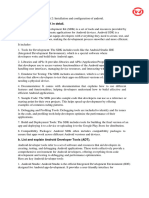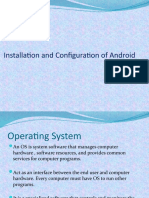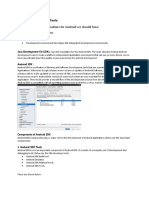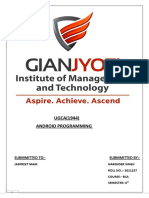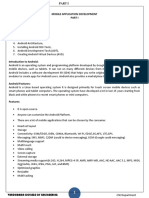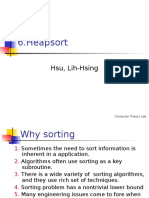0% found this document useful (0 votes)
12 views11 pages05 Android SDK
The Android Software Development Kit (SDK) is a comprehensive set of tools, libraries, and documentation developed by Google for creating applications on the Android platform. It includes essential components such as SDK Tools, Platform Tools, Build Tools, and an Android Emulator, all designed to facilitate app development, testing, and debugging. The SDK is compatible with various operating systems and is updated alongside new Android releases to ensure developers have access to the latest features and functionalities.
Uploaded by
pakku009Copyright
© © All Rights Reserved
We take content rights seriously. If you suspect this is your content, claim it here.
Available Formats
Download as PPTX, PDF, TXT or read online on Scribd
0% found this document useful (0 votes)
12 views11 pages05 Android SDK
The Android Software Development Kit (SDK) is a comprehensive set of tools, libraries, and documentation developed by Google for creating applications on the Android platform. It includes essential components such as SDK Tools, Platform Tools, Build Tools, and an Android Emulator, all designed to facilitate app development, testing, and debugging. The SDK is compatible with various operating systems and is updated alongside new Android releases to ensure developers have access to the latest features and functionalities.
Uploaded by
pakku009Copyright
© © All Rights Reserved
We take content rights seriously. If you suspect this is your content, claim it here.
Available Formats
Download as PPTX, PDF, TXT or read online on Scribd
/ 11








